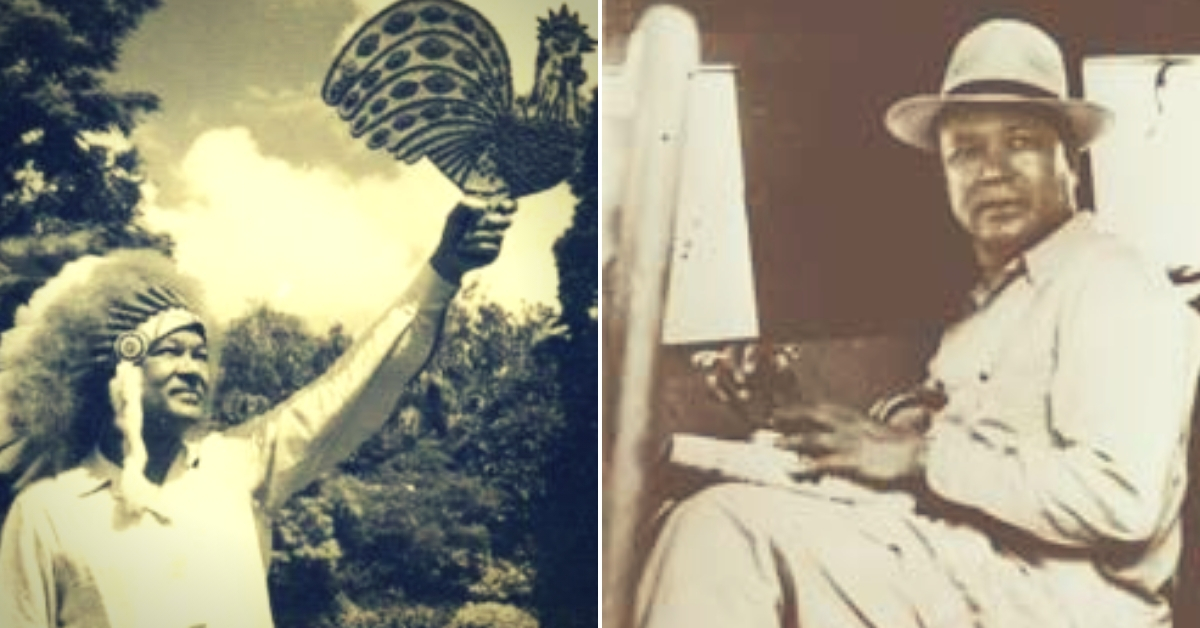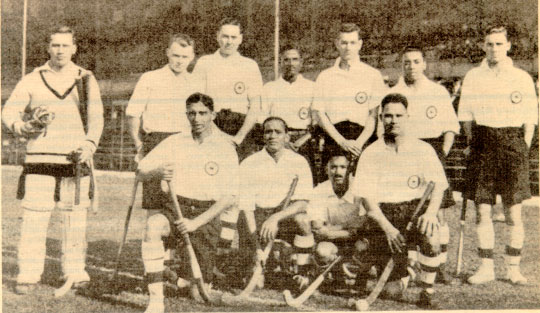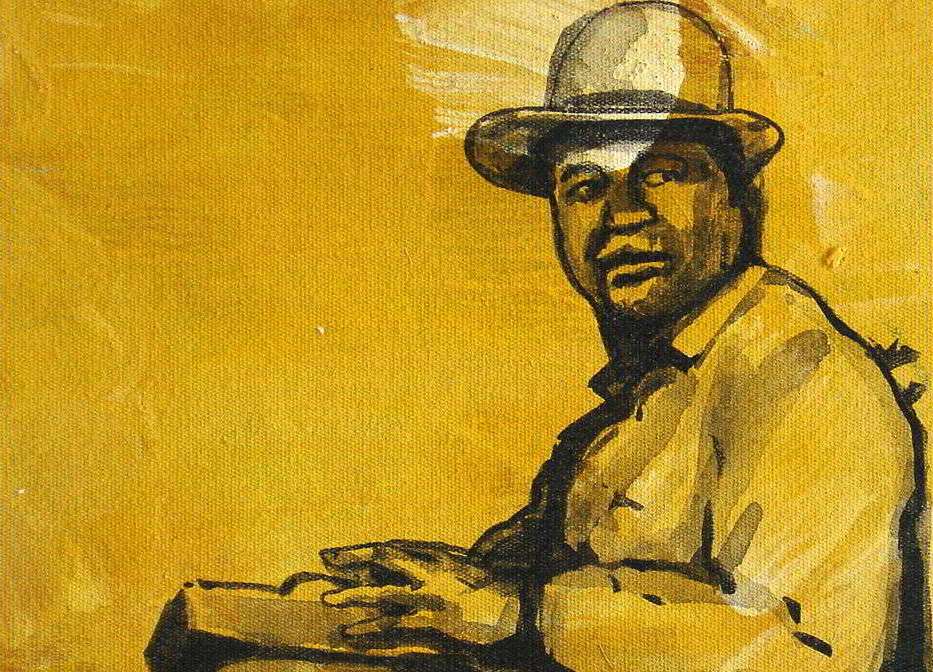This Unsung Hero Won An Olympic Gold, Took On The British & Fought for Adivasi Rights!
A remarkable leader who rubbed shoulders with Dhyan Chand and BR Ambedkar, Jaipal Singh Munda remains one of the more underappreciated figures of modern Indian history.

Captain of the first Indian team to win the hockey gold in the 1928 Olympics, member of the Constituent Assembly responsible for framing the Indian Constitution and a life-long activist for tribal rights, Jaipal Singh Munda remains one of the more underappreciated figures of modern Indian history.
Born on January 3, 1903, in the same Khunti subdivision of Ranchi district (a separate district in present-day Jharkhand) as fellow freedom fighter Birsa Munda, who had only died three years earlier, Jaipal grew up in the Takra Pahantoli village of the erstwhile Bihar Province.
Like many Adivasi families of the day, Jaipal’s parents, who were simple farmers, had also come to embrace Christianity and studied at a village church school. It was a group of missionaries affiliated to the Church of England, who first spotted a young Jaipal’s leadership qualities, talent and intelligence. He was soon drafted into the missionary-run St Paul’s College in Ranchi, where teachers took further note of his intelligence in class and outstanding talent in hockey.
With the principal of St Paul as his patron, Jaipal took off for Oxford University for higher studies after completing school. This is where his talents in the game of hockey really began to shine, and a short while later, he was selected for the Oxford University team.
“The hallmarks of his game as a deep defender were his clean tackling, sensible game-play and well-directed hard hits. He was the most versatile player in the Oxford University hockey team. His contribution to the university hockey team earned him recognition, and he became the first Indian student to be conferred the Oxford Blue in Hockey,” according to this account in the Forward Press.
Besides playing the game, he was also a prolific columnist, often writing about hockey for different British journals. Nonetheless, the course of Jaipal’s life would forever change in 1928, when he was selected as captain to lead the Indian hockey team in the 1928 Amsterdam Olympic Games.
By the time, however, he had obtained his Economics (Honours) degree with distinction and passed the prestigious Indian Civil Service (ICS) exam, topping the interview segment.
It was when he was undergoing training as a probationer for the ICS that Jaipal received a call for the Indian hockey team. Initially, he sought a short leave of absence—a request rejected by the India Office of the British government—so that he could play in Amsterdam.
Between representing the Indian hockey team and ICS, Munda went with his heart and chose the former, forgoing a career in the civil services. This isn’t the first time an Indian freedom fighter would forego a job in the civil services to follow his passions.
The Indian team blazed through the tournament with the world getting their first sight of the legendary Dhyan Chand. Unfortunately, the selection of Jaipal, an Adivasi, had created discontent among the many Anglo-Indian players and team management and differences between both sides erupted just days before the final. After a row with the team management, Jaipal decided not to play the final match against Holland. Fortunately, it had no repercussions on the team as they went onto win the match, and subsequently the Olympic gold medal.

Following his return to Oxford the then Viceroy of India, Lord Irwin personally congratulated Jaipal for his leadership and the team’s performance. This success had even brought about a change of heart in the India Office, which requested Jaipal to re-join the ICS under the condition that they would extend his probation by a year, a demand he felt was both insulting and discriminatory.
Miffed by the India Office, he rejected a second opportunity at joining the ICS and instead found work with the multinational oil company, Burmah Shell, where for a brief time he worked as a senior executive.
However, his heart was in academia, and soon he took up teaching positions in various universities across India, before joining the Prince of Wales College at Achimota in Ghana, in 1934, as a commerce teacher. Three years later, Jaipal returned to India and became principal of the Rajkumar College, Raipur, an “exclusive preserve and grooming ground of young men from Indian princely and feudal families in the company of European students,” according to the Forward Press.
After a year of standing up to discrimination from students and parents alike for his tribal background, Jaipal joined the administration of the Bikaner Princely State, as revenue commissioner and subsequently foreign secretary.

It was also during this period when he began his extensive campaign for the rights of indigenous communities. Unhappy with the inability with the efforts of the Indian National Congress to advocate more vociferously for tribal rights, he set up the Adivasi Mahasabha in 1938, in which, among other things, he raised the demand for a separate Adivasi state carved out of Bihar called Jharkhand. This demand of an independent state for tribals earned him the moniker of ‘Marang Gomke’ or ‘great leader’ in Mundari, a language spoken among members of his Munda tribe.
Success eventually came in 1946, when he was elected to the Constituent Assembly from a ‘general constituency’ in Bihar. He addressed this august gathering for the first time on December 19, 1946, introducing himself as a “Jungli” (a forest dweller), speaking of how the Adivasis were the “original people of India” and why India must afford them the space to practice their distinct culture and identity.
“I rise to speak on behalf of millions of unknown hordes—yet very important—of unrecognised warriors of freedom, the original people of India who have variously been known as backward tribes, primitive tribes, criminal tribes and everything else, Sir, I am proud to be a Jungli, that is the name by which we are known in my part of the country. As a jungli, as an Adibasi, I am not expected to understand the legal intricacies of the Resolution. You cannot teach democracy to the tribal people; you have to learn democratic ways from them. They are the most democratic people on earth,” he said.
Among other interventions, Munda famously spoke up against any prohibition on intoxicating beverages, as ensconced in the Directive Principles of the Constitution. In a debate on November 24, 1948, he spoke of how this provision was a direct assault on their way of life.
“Now, as far as the Adibasis are concerned, no religious function can be performed without the use of rice beer. The word here used—the phrase used is ‘intoxicating drinks.’ Sir, that is a very vague way of describing the thing, and, also ‘injurious to health.’ My friend Prof. Shibban Lal has tried to put forward the argument of economic efficiency. He thinks that if prohibition were installed in this country, the economic efficiency of the workers would be enhanced. I dare say it would be. But what I want to tell him is that it is not merely the industrial workers whom he has particularly in mind, that are affected. I would like to point out to him the position of the very poor people, the Adibasis, and, members who come from West Bengal and other places will bear me out in what I say about the Adibasis who are in such large numbers in West Bengal, Southern Bihar, Orissa and other places. In West Bengal, for instance, it would be impossible for paddy to be transplanted if the Santhal does not get his rice beer,” he famously said.

One could surmise that such interventions compelled the Constituent Assembly from shelving the very idea of prohibition into its Directive Principles. Thanks to the likes of Jaipal Munda, the Constituent Assembly inserted multiple constitutional safeguards for the Adivasi communities, recognising them as minorities and establishing reservation in government jobs, among others.
Continuing to strive for tribal rights even after Independence, Jaipal eventually passed away on March 20, 1973, as a result of cerebral haemorrhage. However, his dream of carving out an entirely new state of Jharkhand from Bihar would take another 27 years to realise completely. Having said that, Jaipal brought the Adivasi story into the mainstream political discourse.
(Edited by Gayatri Mishra)
Like this story? Or have something to share? Write to us: [email protected], or connect with us on Facebook and Twitter.
If you found our stories insightful, informative, or even just enjoyable, we invite you to consider making a voluntary payment to support the work we do at The Better India. Your contribution helps us continue producing quality content that educates, inspires, and drives positive change.
Choose one of the payment options below for your contribution-
By paying for the stories you value, you directly contribute to sustaining our efforts focused on making a difference in the world. Together, let’s ensure that impactful stories continue to be told and shared, enriching lives and communities alike.
Thank you for your support. Here are some frequently asked questions you might find helpful to know why you are contributing?


This story made me
-
97
-
121
-
89
-
167











